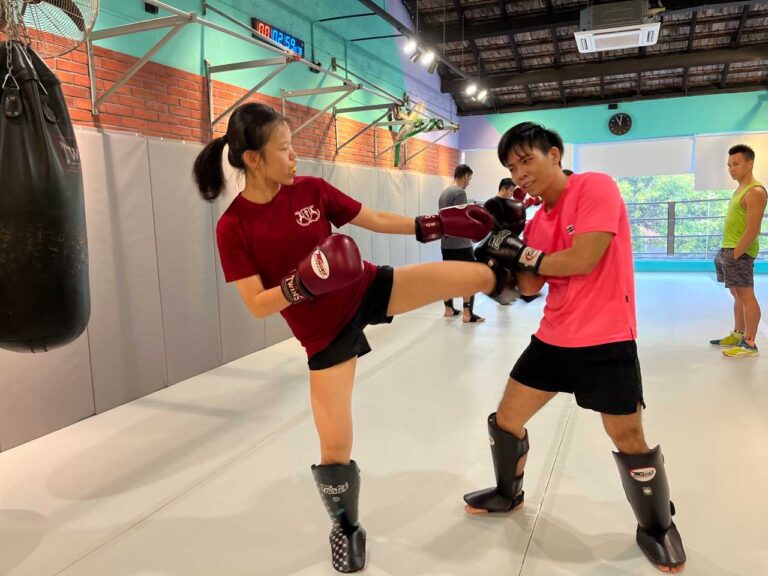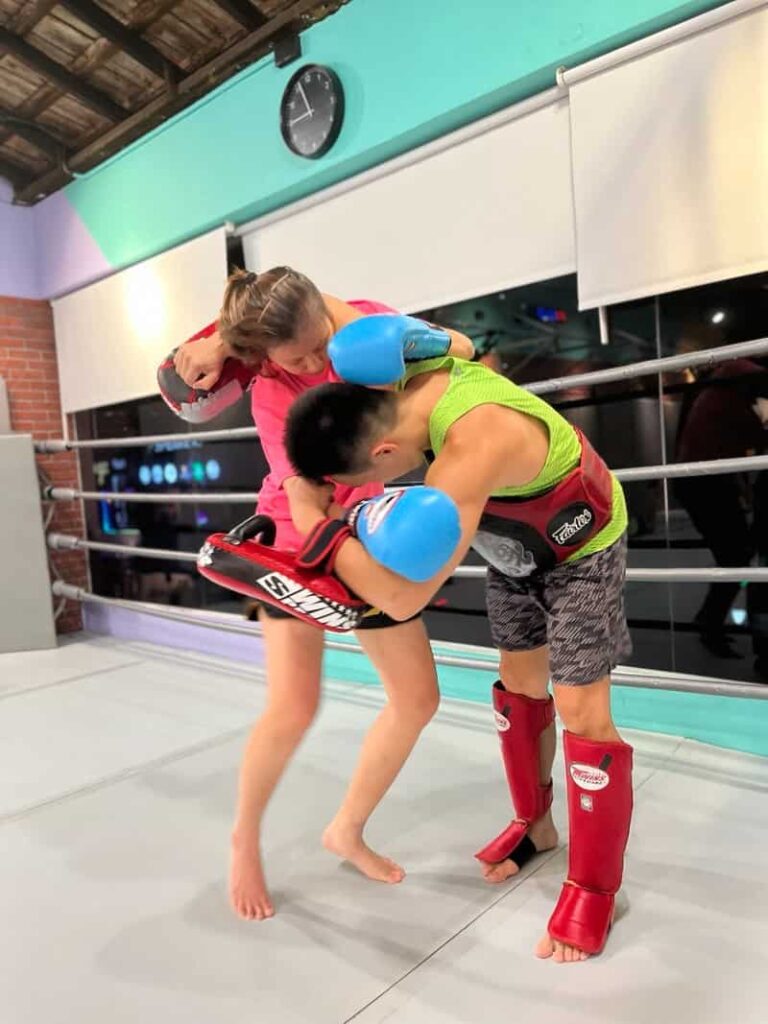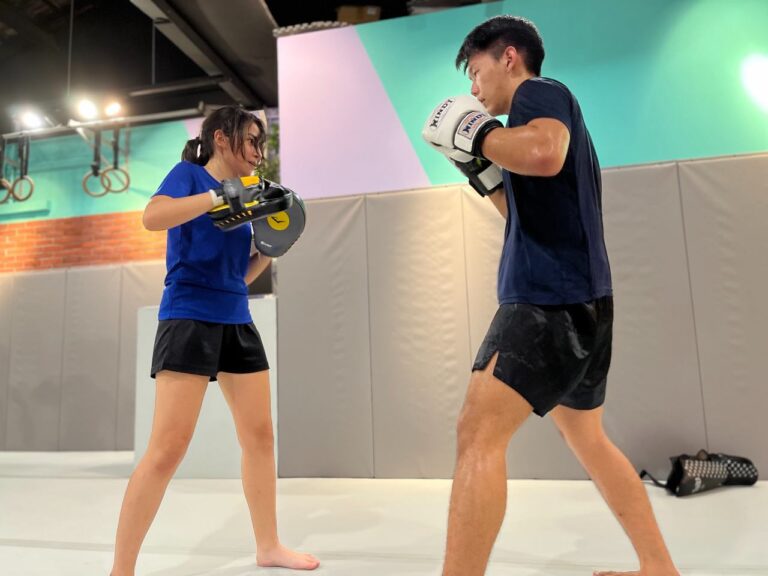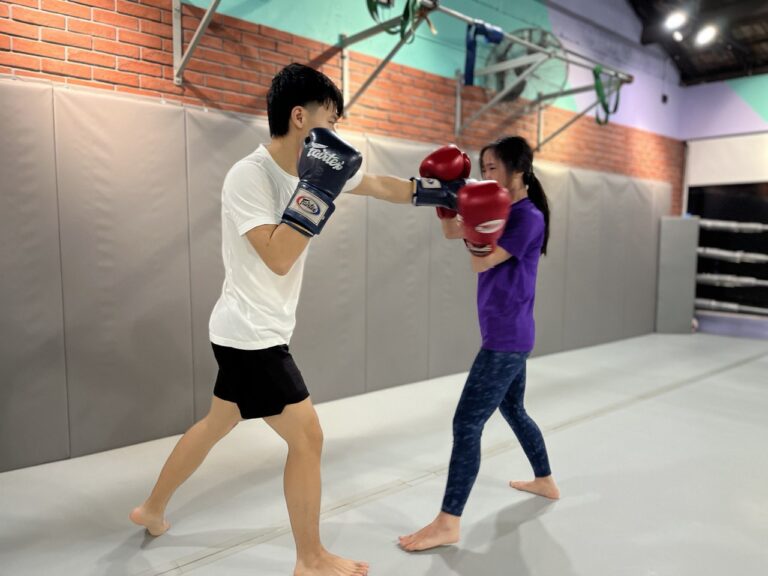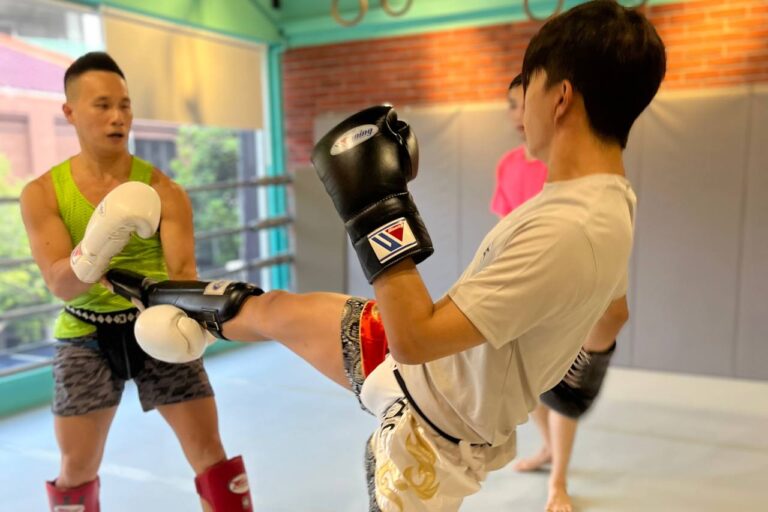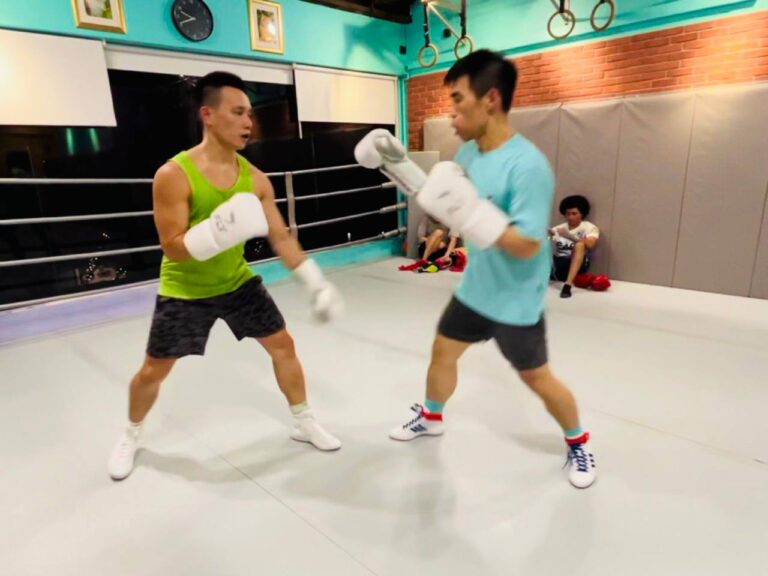Preventing Injuries in Muay Thai
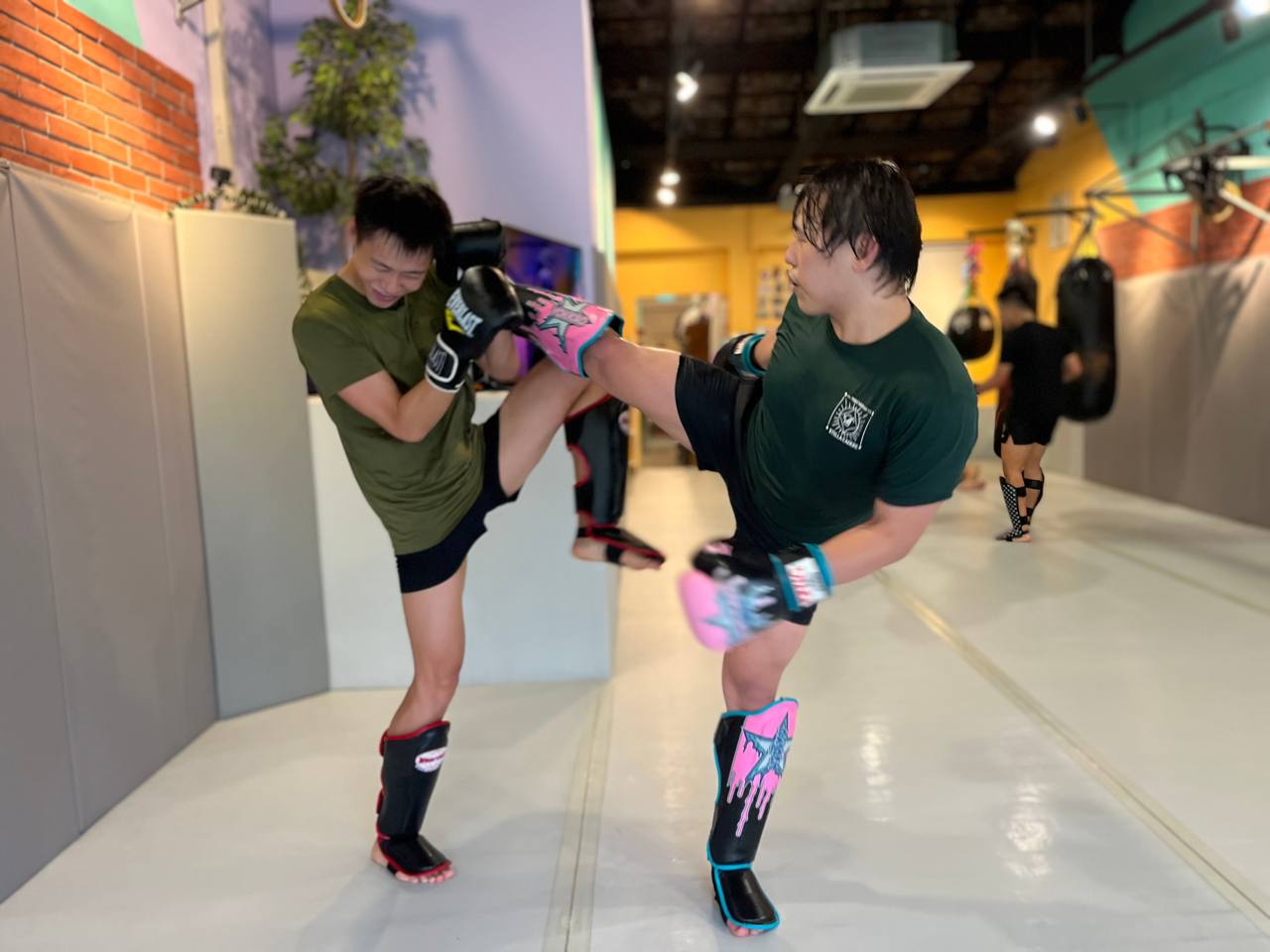
Due to its physical nature, people often have the misconception that Muay Thai is a dangerous sport and that injuries are inevitable. However, injuries can be easily avoided or minimised by following the tips below:
- Warm-Up and Stretching: Before any training session, it’s vital to warm up properly to prime and activate your muscles for further exertion. Here’s what a good warm up should look like:
- .
- Increase in core temperature and blood flow to your muscles: this prepares your body for the intense physical activity ahead. An indication of this is working up a bit of sweat during the warm up.
- Dynamic stretches: Examples of these include leg swings, arm circles, and hip rotations which can help improve your range of motion and reduce the risk of pulling or tearing your muscles.
- Shadow boxing: Adding this to your routine will allow you to prep the muscles specific to Muay Thai which will be used more intensely later on in training.
.
- Proper Technique and Form: Pay attention to your form when throwing any strike.
- .
- Correct stance, alignment, and body mechanics: With this, the risk of overuse injuries can be greatly reduced. Furthermore with proper form, your strikes will have increased power, speed and efficiency.
- Develop proper defensive techniques: Make sure that you are well-versed in how to defend strikes (eg. Blocking kicks and punches) before attempting to spar.
.
- Quality Protective Gear: Investing in good protective gear is essential to train safely. The following equipment are a must for every sparring session:
- Hand Wraps: They provide support to your wrists and knuckles, thus decreasing the risk of hand and wrist injuries.
- Mouthguard: Protect your teeth and jaw by wearing well-moulded mouthguard during sparring. A good mouthguard should fit snugly around your teeth and allow you to talk without it dropping down, it should also not be too bulky nor impede airflow in and out of your mouth.
- Groin Guard: A necessity for guys during sparring. Find one that fits well and does not impede your movement.
- Shin Guards: Shin guards are crucial for protecting your shins and reducing the risk of shin bruising and fractures during kicks.
.
- Pay Attention to Your Body: Overtraining is usually the cause of most injuries, so it is vital to listen to your body and rest when needed.
- Adequate rest: This is essential for muscle repair and recovery.
- Pacing yourself: Be careful not to push yourself too hard during training, especially if your fitness level is not at it’s peak. Do not be afraid to ask to sit out or rest if needed.
- Training with injuries: If you are injured, avoid using that body part or muscle group, work on other aspects instead.
.
- Cross-Training: Consider incorporating other exercises into your regimen to improve strength and flexibility. Some examples include yoga, Pilates, and strength training.
. - Nutrition and Hydration: Proper nutrition and hydration are vital for maintaining good energy levels and reducing the chance of fatigue-related injuries.
- Diet: Consume a balanced diet rich in whole foods like vegetables, fruits, and whole grains.
- Carbohydrates: Ensure that you are consuming enough carbohydrates (body’s primary source of energy) to maintain blood glucose levels and fuel your long training sessions.
- Hydration: Hydrate yourself with plenty of water and electrolytes before, during, and after training sessions to reduce risk of muscle cramps, dehydration and overheating.
.
- Controlled Sparring: Sparring is an essential part of Muay Thai training and should always be conducted under controlled conditions.
- Attentive coaches: Look out for gyms with trainers that are able to intervene when sparring gets too intense and give good pointers to improve your sparring sense.
- Communication: Communicate with your sparring partner to ensure that the intensity and power of strikes are appropriate for both parties
- Control your power: Control the speed and power of your strikes as increasing them will likely cause your sparring partner to do the same.
- Practice caution: Avoid throwing reckless volume and ignoring any defensive techniques, in order to “win” against your sparring partner. Remember that sparring partners are there to help you learn and grow as a martial artist, so take care of each other.
- Protective equipment: Always wear the protective gear mentioned above during sparring sessions.
.
- Regular Conditioning: Incorporate strength and conditioning exercises into your routine to improve your physical condition.
-
- Exercises like plyometrics, resistance training, and anaerobic high intensity cardiovascular workouts can improve your overall fitness and strength.
By following these essential tips, you can significantly decrease the risk of injuries and prolong your journey in this martial art. Remember to train sensibly, rest when needed, and spar intelligently.
– Coach Yij @cowsgo_rebel

